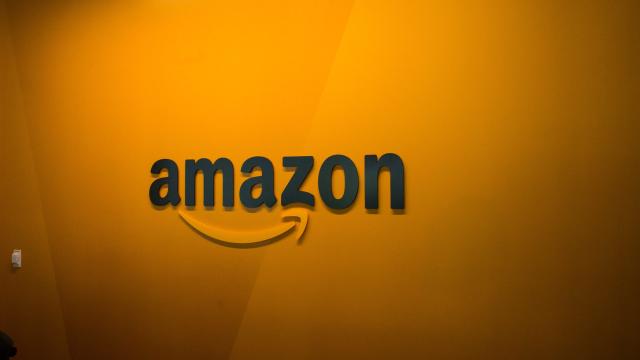Amazon is marketing its facial recognition software to Florida police departments that are currently partnered with its home surveillance company, Ring ” arrangements that allow police to request access to video footage captured by homeowners.
Emails uncovered by an ABC News investigative team in Tampa Bay (WFTS) reportedly show that Amazon has been pushing police departments to adopt its controversial face recognition software, Rekognition, while also helping them acquire access to footage taken by Ring’s doorbell cameras via its Neighbours app.
Ring has repeatedly told reporters that neither its devices nor the law enforcement portal through which police request access to Ring footage use facial recognition. (“Ring does not use facial recognition technology,” a spokesperson told Gizmodo last month.) But Ring’s denials do not appear to rule out the possibility that police may, at some point, obtain doorbell footage and analyse the faces in it using a separate Amazon product.
WFTS said it attempted multiple times to contact Ring, which was acquired by Amazon in 2018, in the week leading up to its report. The company did not respond.
Documents obtained by the American Civil Liberties Union (ACLU) last year showed that Amazon had been handing out its Rekognition tool to U.S. police free of charge. The group says the technology, which researchers and critics call racially biased, poses a “grave threat” to communities.
“People should be free to walk down the street without being watched by the government. Facial recognition in American communities threatens this freedom. In over policed communities of colour, it could effectively eliminate it,” the ACLU and other groups wrote in a letter to the Amazon.
In August, BuzzFeed News reported that, despite Ring’s insistence that it does not use face recognition technology, the company’s Ukraine arm appeared to be developing a face recognition tool. A 2018 presentation unearthed by reporters even shows that, at least at the time, Ring Ukraine had a “head of face recognition research” on staff.
Police departments partnered with Ring are given the ability to request footage directly from Ring customers, but cannot, the company says, obtain it otherwise without a warrant. It remains unclear whether Ring notifies customers of warrants, even in cases where the customer is not suspected of a crime. (Gizmodo has posed this question to Ring on multiple occasions and received no response.)
Gizmodo reported in July that Ring’s contracts with law enforcement agencies forbid police from making public statements about the company and its products without Ring’s permission. Further Gizmodo reporting found that Ring was seeking access to real-time emergency caller data to use as content for its Neighbours app.
In some cases, Ring has barred police departments from using the term “surveillance” to describe its products, stating explicitly in one email that doing so “can flag user privacy concerns.”
Ring’s police partnerships have drawn widespread concern from American civil rights organisations that say the technology poses a threat to privacy and civil liberties. A coalition of over 30 groups, including Fight for the Future, Media Justice and Colour of Change, signed an open letter last week calling on local, state, and federal officials to investigate Ring’s business practices.
“A key component of the partnership turns police departments into marketing agencies and police officers into salespeople for Amazon. Amazon provides officers with talking points to promote their technology and products to residents, and requests departments market the products at city events,” the letter states.
It continues: “In the absence of clear civil liberties and rights-protective policies to govern the technologies and the use of their data, once collected, stored footage can be used by law enforcement to conduct facial recognition searches, target protesters exercising their First Amendment rights, teenagers for minor drug possession, or shared with other agencies like ICE or the FBI.”
In a letter to Amazon CEO Jeff Bezos last month, U.S. Senator Ed Markey, who sits on the Committee on Commerce, Science, and Transportation, wrote that Ring’s partnerships “raise additional civil liberties concerns” and could enable police to “create a surveillance network that places dangerous burdens on people of colour and feeds racial anxieties in local communities.”
“I am particularly alarmed to learn,” he wrote, “that Ring is pursuing facial recognition technology with the potential to flag certain individuals as suspicious based on their biometric information.”
